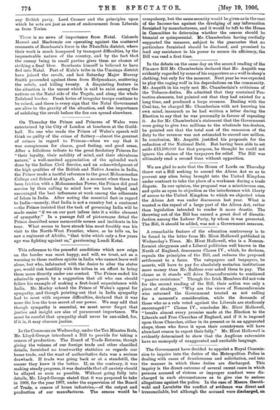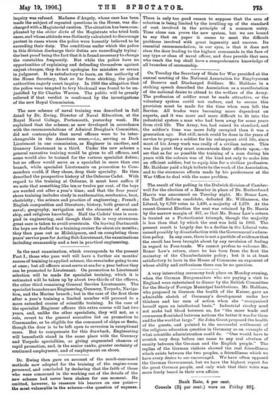The Government have decided to appoint a Royal Commis- sion
to inquire into the duties of the Metropolitan Police in dealing with cases of drunkenness and solicitation, and into the manner in which these duties are discharged. This inquiry is the direct outcome of several recent cases in which persons accused of riotous or improper conduct were dis- charged in such circumstances as to give rise to serious allegations against the police. In the case of Messrs. Geroth- wohl and La,valette the conflict of evidence was direct and irreconcilable, but although the accused" were discharged, in inquiry was refused. Madame d'Angely, whose case has been made the subject of repeated questions in the House, was dis- charged with aMagisterial caution. The situation has beencom- plicated by the obiter dicta of the Magistrate who tried both cases, and whose attitude was distinctly calculated to discourage protest in cases where the police were honestly believed to be exceeding their duty. The conditions under which the police in this division discharge their duties are exceedingly trying the beat proof being the fact that it is found necessary to change the constables frequently. But while the police have no opportunities of explaining and defending themselves against unjust charges, they do not apologise for mistakes or errors in judgment. It is satisfactory to learn, on the authority of the Home Secretary, that so far from shirking, the police authorities eagerly court inquiry. In 1888 the allegation that the police were tempted to levy blackmail was found to be un- justified by Sir Charles Warren. The public will be greatly relieved if that verdict is confirmed by the investigations of the new Royal Commission.











































 Previous page
Previous page